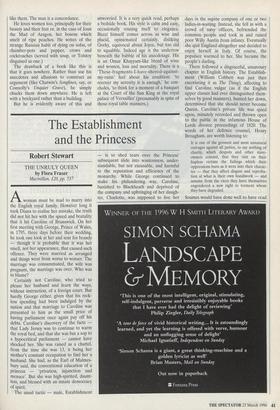Of cabbages and kings
Gareth Howell-Jones
JOURNEY TO THE LAND OF THE FLIES by Aldo Buzzi Faber, £9.99, pp. 147 When Proust was asked who he would have liked to have been if he had not been Proust, he replied, "Pliny the Younger." But he was only 14.'
This is Aldo Buzzi, an 85-year-old Italian litterateur (though he dislikes the term, dis- missing the said Pliny as one), translated into English for the first time. His book is wry fun, full of anecdotes and enchantingly useless information. On haemorrhoids, for example, 'which a friend of Chekhov's cured by keeping a chestnut from an Indian chestnut tree in a pocket of his trousers,' or on royal teeth: Louis XIII, we discover, had 48 while Louis XIV had none after an operation in which he lost part of his palate — crumbs of food would drop out of his nose as he was chewing. We learn that Tol- stoy had a horse called Delirium, and that there was a Chinese hit record catchily entitled 'Govern the State, Centring the Work on the Class Struggle.'
This is Buzzi's method, discursive and allusive, flashily but not ponderously well- read. Although it is called a book of travels there is little actual travelling involved it's a portfolio of sketches, of England, Sici- ly, Malaysia, their food, drink and women, their literary connections, whatever, in short, drifts into Buzzi's mind. In `Chelchov in Sondrio' he marvellously conveys an infectious nostalgia for the Russia of the 19th-century novelists — all vodka, kumiss and Gorokhovaya Street. In this piece, the longest in a short book, he manages over 200 quotations and allusions in 60 pages. The nimbleness of his digressions can be exasperating. Learning that Dostoevsky drew the faces of his characters on the manuscript of Crime and Punishment I wanted to know more, but Buzzi was off again, stumbling this time into banality: `When he rode in a carriage he would talk to the coachman.' Wow!
Generally, however, one need only sit back and enjoy oneself. Food is his greatest love. 'The word one encounters most in the classics of Russian literature is "cabbage" But he's equally good on cucumbers. He knows four Russian quotations about them and two more praising women for being like them. The man is a concordance.
He loves women too, principally for their beauty and their feet or, in the case of Joan the Mad of Aragon, her bosom which smelt of ripe peaches. He writes of the strange Russian habit of dying on sofas, of chamber-pots and pepper, crows and cockroaches (served with soup, or Tolstoy disguised as one.) The drawback of a book like this is that it goes nowhere. Rather than use his anecdotes and allusions to construct an argument (like Chatwin's Songlines, say, or Connolly's Unquiet Grave), he simply chucks them down anywhere. He is left with a brickyard rather than a building.
But he is evidently aware of this and unworried. It is a very quick read, perhaps a bedside book. His style is calm and easy, occasionally rousing itself to elegance. Buzzi himself comes across as wise and placid, opinionated certainly, disliking Gorky, equivocal about Joyce, but too old to squabble. Indeed age is the undertow beneath the babble of his anecdotage. His is an Omar Khayyam-like blend of wine and women, loss and mortality. There is a `These-fragments-I- have -sho re d- ag ainst - my-ruins' feel about his erudition: 'to recover my serenity it is enough,' he con- cludes, 'to think for a moment of a banquet at the Court of the Sun King at the royal palace of Versailles' (presumably in spite of those royal table manners.)



































































 Previous page
Previous page